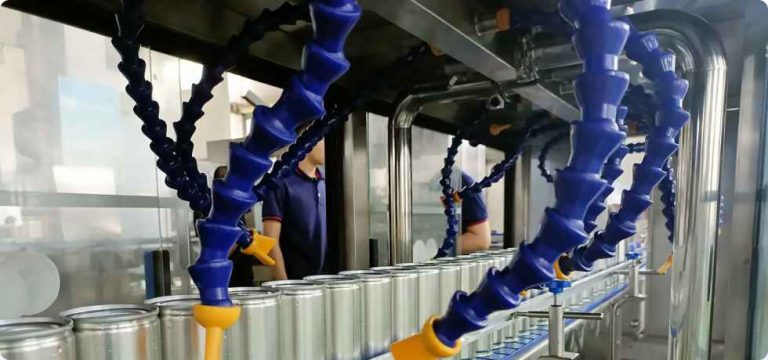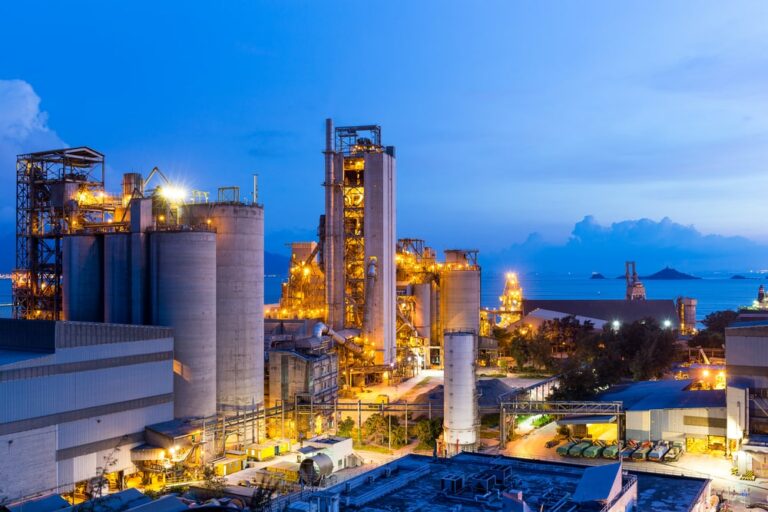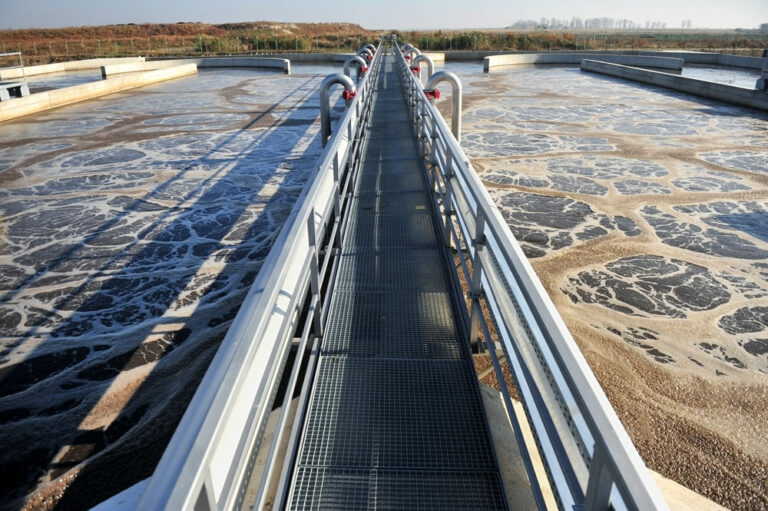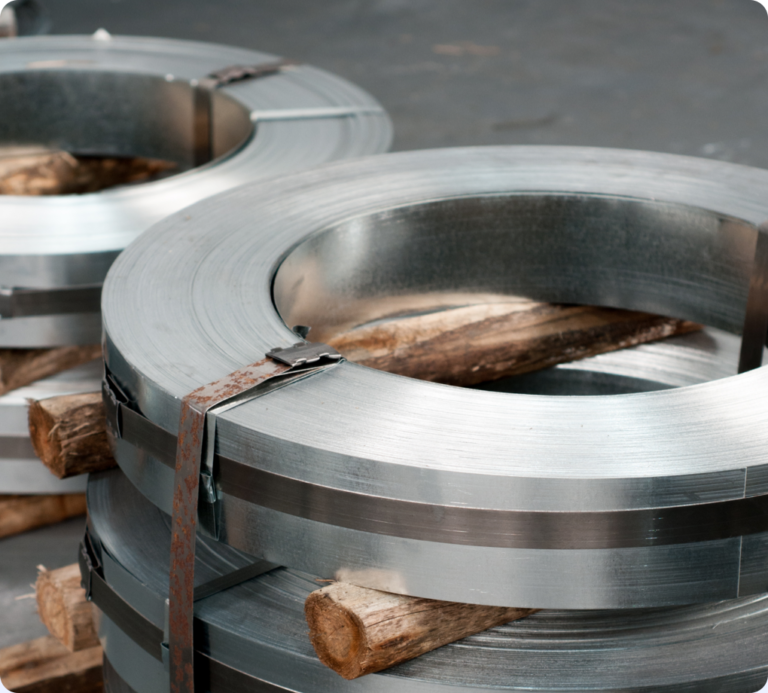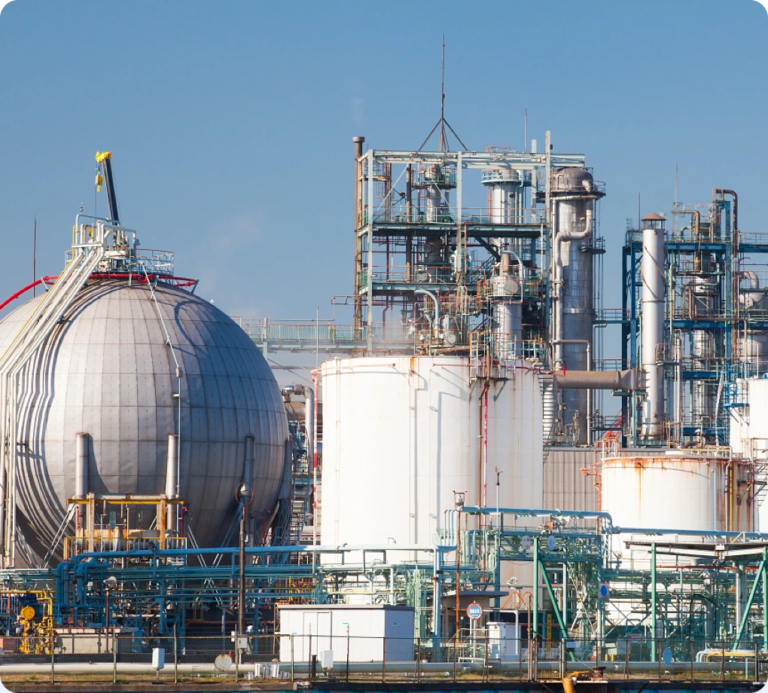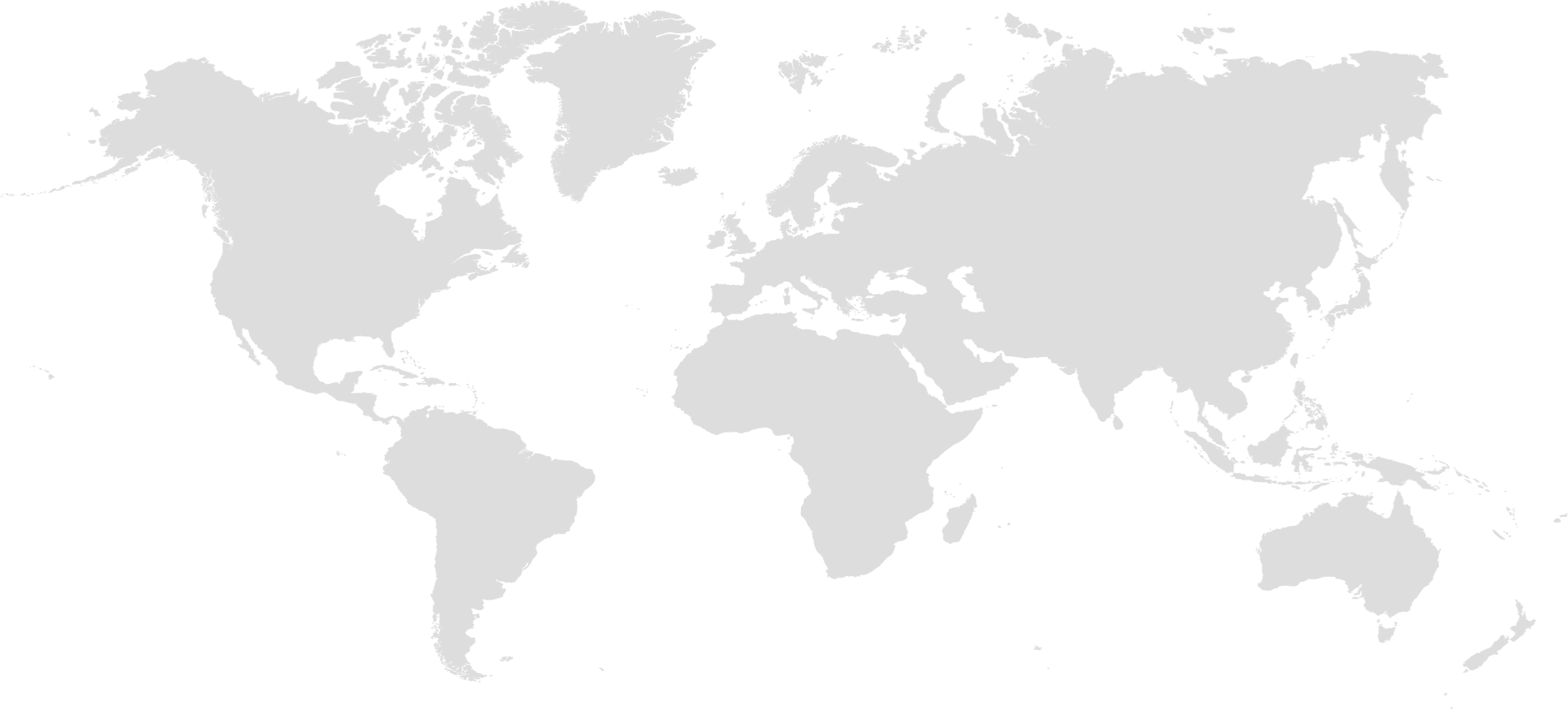RAETTS have realized the R&D and intellectual manufacturing of the whole industrial chain of blowers and compressors. Innovation has never stopped, technology is the king. After more than ten years of innovation and development, RAETTS has broken through the international technology monopoly and created a mature air bearing blower and maglev turbo blower dual production lines firstly in the industry, pioneered the portable and the miniature type air bearing blower.We have Won High Praise From Our Clients Who Came From Europe,America,Asia,Saint Pierre and Miquelon,Malawi,Sao Tome and Principe,Jan Mayen,Norway,Armenia,Vietnam,Comoros… etc.
RAETTS has passed ISO9001 quality management system certification, ISO14001 environmental management system certification, ISO45001 occupational health and safety management system certification, ISO10012 measurement management system certification, five-star after-sales service system certification, intellectual property management system certification and other authoritative certifications.

| Product name | Centrifugal Blowers for Chemical industry |
| Keyword | air blower for printing and dyeing wastewater,turbo air blower system,air cooling blower,Industrial Blowers for Textile industry,oil-free air turbo blowers,centrifugal blower |
| Place of Origin | China |
| Feature | RAETTS air bearing turbo blower is a brand-new concept blower, which integrates the main core technologies such as “air suspension bearing”, “permanent magnet ultra-high-speed motor”, “high-precision aviation-grade impeller”, and creates a new era of ultra-high efficiency ,low noise and low energy consumption. |
| Dimensions | 755mm*741mm*831mm, (Contact us for specific information to confirm) |
| Applicable Industries | brewing, etc. |
| Weight | 257kg |
| delivery date | the common delivery time will be 30-40 days. |
| terms of paymen | RAETTS accept payment by T/T(30% advance payment,70% before shipment) |
| Life span | 18 years (Contact us for specific information to confirm) |
| After-sale service | RAETTS warranty time for air bearing blower and maglev turbo blower is 24months,for high speed centrifugal blower is 12 months. |
| Advantage | We keep good quality and competitive price to ensure our customers benefit |
| Packing | 829x874x808mm(Contact us for specific information to confirm) |
| OEM/ODM | Customization Service Provided |
| Sales country | All over the world for example:Saint Pierre and Miquelon,Malawi,Sao Tome and Principe,Jan Mayen,Norway,Armenia,Vietnam,Comoros |
| MOQ | 9pcs(Contact us for specific information to confirm) |
| production capacity | production capacity RAETTS production quantity for air bearing blower and maglev turbo blower is about 200pcs/month,for high speed centrifugal blower is about 700pcs/month. |
| raw materials | RAETTS air blower impeller in made of aluminum alloy,enclosure material is carbon steel,rotor material is cast iron.If customers need other special materials,we can also customized according to customers requirements |
| technology | RAETTS air bearing blower technology is originated from South Korea and maglev turbo blower technology is originated from Germany.RAETTS also have R&D team from Xi’an Jiaotong University |
| quality system | RAETTS has quality management system certificate ISO9001:2015 and enviromental management system certificate ISO14001:2015 |

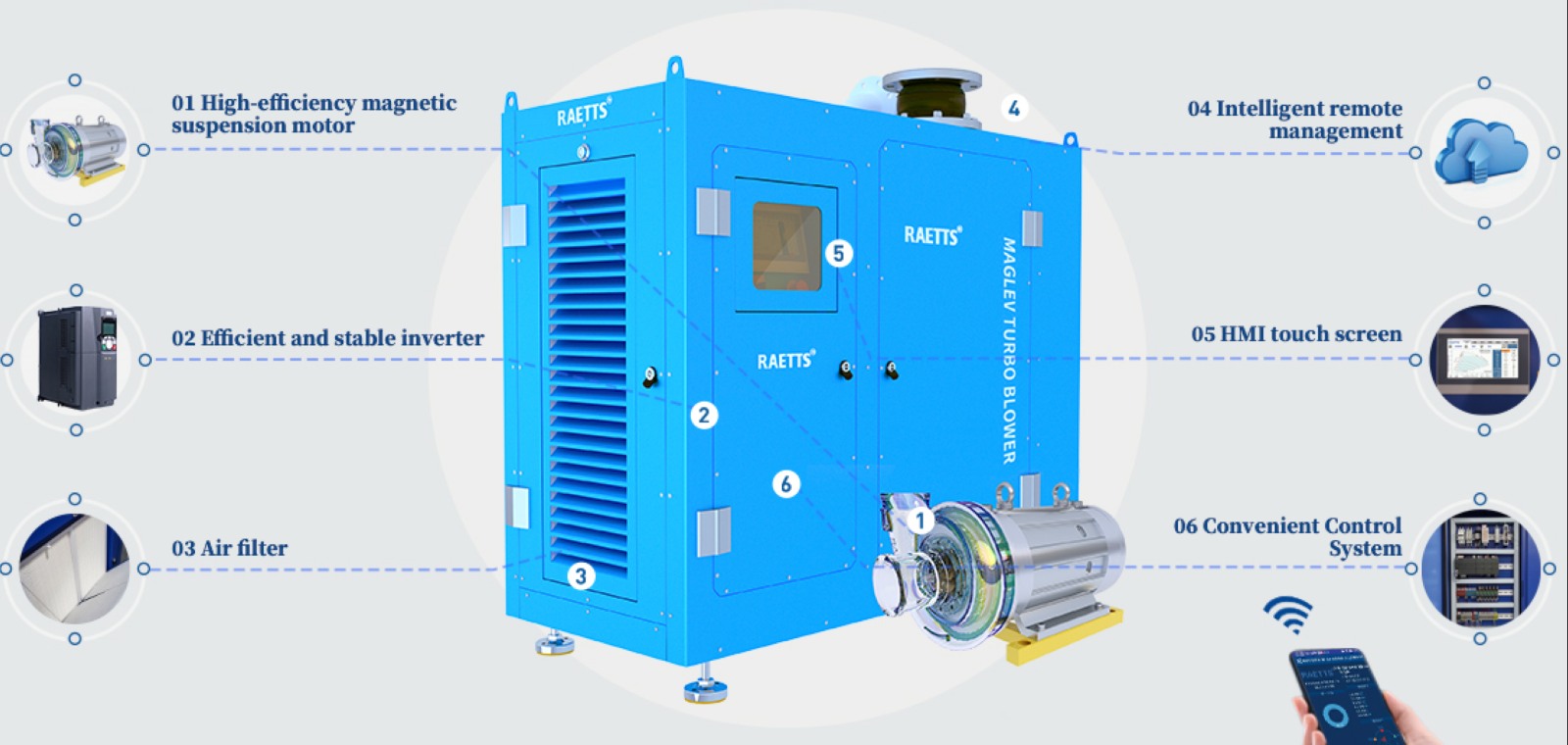
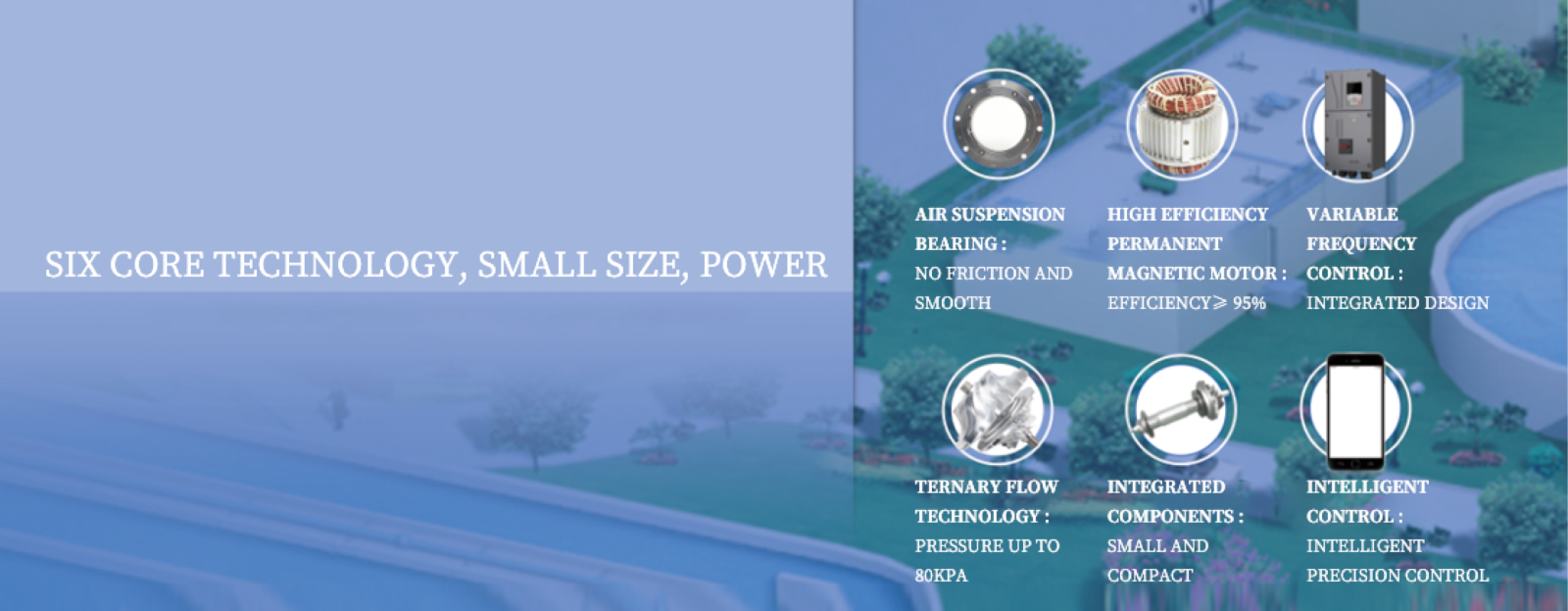
Centrifugal Blowers for Chemical industry services FAQs Guide
Are you looking for a quick review guide about Centrifugal Blowers for Chemical industryservices?
An ultimate FAQ buying guide is available to help you.This guide contains all the information about all the important facts, figures, and various processes regarding Centrifugal Blowers for Chemical industry services.
Let’s continue!
2.About Centrifugal Blowers for Chemical industry air blower origin
3.Are There Different Sizes of Turbo Blowers Available?
4.What are the advantages of using an turbo Centrifugal Blowers for Chemical industry?
5.About Centrifugal Blowers for Chemical industry production skills training
6.About Centrifugal Blowers for Chemical industry payment method
7.What Type of Filter is Recommended for Use with a Turbo Blower?
8.About Centrifugal Blowers for Chemical industry R&D capabilities
9.What are the Main Components of a Turbo Blower?
10.Can a Turbo Blower Be Used for Both Vacuum and Compression Applications?
11.About Centrifugal Blowers for Chemical industry MOQ
12.How Does a Turbo Blower Ensure Oil-Free Operation?
13.About Centrifugal Blowers for Chemical industry overseas warehouse
14.What is the Overall Efficiency Rating of a Turbo Blower?
1.What Noise Levels Can I Expect from a Turbo Blower?
We operate our Centrifugal Blowers for Chemical industry business with integrity and honesty.
The noise levels of a turbo blower can vary depending on the specific model and manufacturer. However, on average, a turbo blower can produce noise levels between 70-90 decibels (dB) at a distance of 3 feet. This is comparable to the noise level of a vacuum cleaner or a busy street. Some newer models of turbo blowers may have noise levels as low as 60 dB, which is similar to the noise level of a normal conversation. It is important to note that the noise level can also be affected by the installation location and any additional soundproofing measures that may be in place.
2.About Centrifugal Blowers for Chemical industry air blower origin
RAETTS air blower is made in China and made in Germany,we have factory both in China and Germany.
3.Are There Different Sizes of Turbo Blowers Available?
We have a first -class management team, and we pay attention to teamwork to achieve common goals.
Yes, there are different sizes of turbo blowers available. The size of a turbo blower is typically determined by its flow rate and pressure capabilities. Some common sizes of turbo blowers include:
1. Small turbo blowers: These are typically used for low flow rate and low pressure applications, such as in small wastewater treatment plants or for aeration in fish tanks. They can have flow rates of up to 500 cubic feet per minute (CFM) and pressure capabilities of up to 10 pounds per square inch (psi).
2. Medium turbo blowers: These are used for medium flow rate and pressure applications, such as in medium-sized wastewater treatment plants or for pneumatic conveying systems. They can have flow rates of up to 2,000 CFM and pressure capabilities of up to 20 psi.
3. Large turbo blowers: These are used for high flow rate and pressure applications, such as in large wastewater treatment plants or for industrial processes. They can have flow rates of up to 10,000 CFM and pressure capabilities of up to 30 psi.
The size of a turbo blower can also vary depending on the manufacturer and specific model. It is important to select the right size of turbo blower for your specific application to ensure optimal performance and efficiency.
4.What are the advantages of using an turbo Centrifugal Blowers for Chemical industry?
Comparing with tradition roots blowers,single-stage blowers and multi-stage blowers,turbo blowers effciency is 20%-30% higher,which means using an turbo air blower can help customer to save about 20-30% energy,and then reduce the eletric cost.
5.About Centrifugal Blowers for Chemical industry production skills training
RAETTS will train the production staffs for 3 months before they do production,including:machine operation,assembly,testing and so on.
6.About Centrifugal Blowers for Chemical industry payment method
RAETTS accept payment by T/T(30% advance payment,70% before shipment)
7.What Type of Filter is Recommended for Use with a Turbo Blower?
We are centered on customers and always pay attention to customers’ needs for Centrifugal Blowers for Chemical industry products.
A high-efficiency particulate air (HEPA) filter is recommended for use with a turbo blower. This type of filter is designed to capture small particles and contaminants, making it ideal for use with a turbo blower which can generate high air flow rates. HEPA filters are also commonly used in industrial and medical settings where clean air is crucial.
8.About Centrifugal Blowers for Chemical industry R&D capabilities
RAETTS R&D team has more than 20 people,the chief team leader worked for BYD before,and the technique of whole team is supported by Xi’an Jiaotong University.
9.What are the Main Components of a Turbo Blower?
Our Centrifugal Blowers for Chemical industry products undergo strict quality control to ensure customer satisfaction.
1. Compressor: The compressor is the main component of a turbo blower and is responsible for compressing the air or gas that is being moved through the blower. It typically consists of a rotating impeller and a stationary diffuser.
2. Motor: The motor provides the power to drive the compressor and is usually an electric motor. The size and power of the motor will depend on the size and capacity of the turbo blower.
3. Inlet and Outlet: The inlet is where the air or gas enters the blower and the outlet is where it exits. These are usually designed to minimize turbulence and maximize efficiency.
4. Bearings: The bearings support the rotating shaft of the blower and allow it to spin smoothly. They are typically made of high-quality materials to withstand the high speeds and loads of the blower.
5. Control System: The control system is responsible for monitoring and regulating the speed and operation of the blower. It may include sensors, controllers, and other components to ensure optimal performance.
6. Cooling System: Turbo blowers generate a lot of heat during operation, so a cooling system is necessary to prevent overheating. This may include air or water cooling systems.
7. Housing: The housing or casing of the turbo blower encloses all the internal components and provides structural support. It is usually made of durable materials such as steel or aluminum.
8. Inlet Filter: An inlet filter is often used to remove any contaminants from the air or gas before it enters the blower. This helps to protect the internal components and maintain efficiency.
9. Sound Attenuator: Turbo blowers can be quite loud, so a sound attenuator is often used to reduce the noise level. This may be in the form of a silencer or other noise-reducing device.
10. Vibration Isolators: Vibration isolators are used to reduce the transmission of vibrations from the blower to its surroundings. This helps to minimize noise and prevent damage to nearby equipment.
10.Can a Turbo Blower Be Used for Both Vacuum and Compression Applications?
We have broad development space in domestic and foreign markets. Centrifugal Blowers for Chemical industry have great advantages in terms of price, quality, and delivery date.
Yes, a turbo blower can be used for both vacuum and compression applications. Turbo blowers are versatile machines that can be used for a variety of applications, including both vacuum and compression. They are commonly used in industries such as wastewater treatment, pneumatic conveying, and industrial processes.
In vacuum applications, the turbo blower is used to create a negative pressure or suction to remove air or other gases from a system. This is commonly used in vacuum pumps for packaging, vacuum cleaners, and other industrial processes.
In compression applications, the turbo blower is used to increase the pressure of a gas or air stream. This is commonly used in pneumatic conveying systems, aeration systems, and other industrial processes.
The versatility of turbo blowers makes them a popular choice for many industries. They are energy-efficient, compact, and have a wide operating range, making them suitable for various applications. However, it is essential to ensure that the turbo blower is designed and selected specifically for the intended application to ensure optimal performance and efficiency.
11.About Centrifugal Blowers for Chemical industry MOQ
Normally our MOQ for air blower is 1 set
12.How Does a Turbo Blower Ensure Oil-Free Operation?
We pay attention to user experience and product quality, and provide the best product quality and lowest production cost for cooperative customers.
A turbo blower ensures oil-free operation through its design and construction, as well as through the use of specialized components and systems.
1. Oil-Free Design: Turbo blowers are designed to operate without the need for oil lubrication. This means that all the moving parts, such as the impeller and bearings, are designed to function without the use of oil. This eliminates the risk of oil contamination in the air stream.
2. Magnetic Bearings: Turbo blowers use magnetic bearings instead of traditional oil-lubricated bearings. These bearings use magnetic fields to levitate and support the rotating shaft, eliminating the need for oil lubrication. This also reduces friction and wear, resulting in longer service life and improved efficiency.
3. Air Cooling: Turbo blowers use air cooling instead of oil cooling. This means that the blower is cooled by the surrounding air, rather than by circulating oil. This eliminates the risk of oil leaks and contamination.
4. Sealed Enclosure: Turbo blowers are enclosed in a sealed housing, which prevents any oil from escaping into the air stream. This ensures that the air being delivered is completely oil-free.
5. Oil-Free Seals: The seals used in turbo blowers are specially designed to be oil-free. This prevents any oil from leaking into the air stream and ensures that the air being delivered is completely oil-free.
6. Oil-Free Filtration: Turbo blowers use specialized oil-free filtration systems to remove any oil or contaminants from the air stream. This ensures that the air being delivered is clean and oil-free.
Overall, the combination of these design features and specialized components ensures that a turbo blower operates without the need for oil lubrication, resulting in completely oil-free operation. This is essential for applications where oil contamination is not acceptable, such as in food and beverage production, pharmaceutical manufacturing, and electronics production.
13.About Centrifugal Blowers for Chemical industry overseas warehouse
RAETTS is cooperating with global distributors,some distributors has stock or sample in their warehouse.For now,RAETTS has Germany factory warehouse,and we are building the USA warehouse.
14.What is the Overall Efficiency Rating of a Turbo Blower?
We are a new Centrifugal Blowers for Chemical industry manufacturer.
The overall efficiency rating of a turbo blower can vary depending on the specific model and manufacturer. However, on average, turbo blowers have an overall efficiency rating of around 70-80%. This means that for every 100 units of energy input, the turbo blower can produce 70-80 units of output energy. Factors such as design, size, and operating conditions can also affect the efficiency of a turbo blower.
Tag:industrial centrifugal blowers,air bearing blower,wastewater aeration blower,Turbo Blower Manufacturer from China,Pneumatic conveying blowers,Centrifugal Blower For Paper Making,Blower for Cement Plant,air blower solutions for wastewater treatment plants

